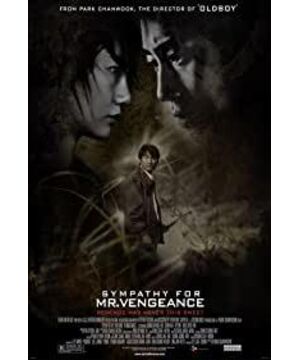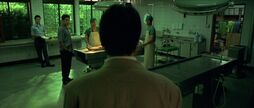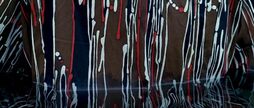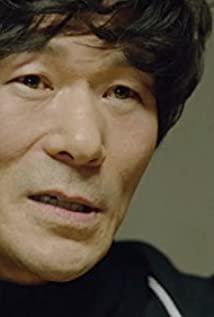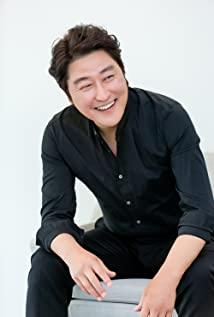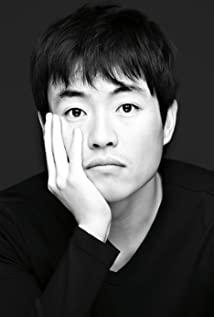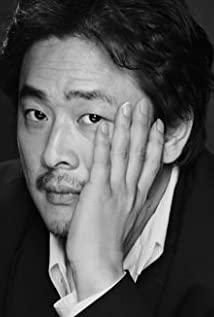Park Chan Wook’s [Common Security Area] is indeed very good. Before 2000, I tended to think that it was one of the top three in Korean movies. Regardless of its technique, director’s control, or its attitude towards history, it is very admirable. . [I want revenge] is also good, there are changes and continuations, but it is estimated that there will be relatively few people who like it. Recently, his new film [Old Boy], which he took to Cannes to participate in the competition, is also quite good, and the IMDB score has reached 8.8! Moreover, this person is still a commentary, and his vision is so broad, but it is rare.
[I want revenge] There are a lot of extremely cruel (cruel) black humor, and there seems to be a little bit of Kitano Takeshi in some places, but it is more fishy than him. It was very uncomfortable to watch the whole film, including the director's view of history. There are some signs of regression. It seems to be a work born out of despair, not as "relatively objective" like [JSA]. This intense emotion of grief affects the whole movie, making it seem narrow and paranoid. But I also feel that the repetition, hesitation, despair, and even retrogression in Park Chan Wook precisely reflect the huge ambivalence in the hearts of Koreans. Tell the story first, otherwise you will be incomprehensible.
This story seems to be a series of motives and pure revenge killings, but it is not... the
green-haired man (the actor should be Shen Hejun, he is also in [JSA]) is a deaf and mute man who does heavy manual labor in a factory. A sick sister. He couldn't donate a kidney for his sister because of the blood type mismatch. He had to get 10 million to get a kidney transplant for his sister. With nothing to do, he had to find an underground organization selling organs to sell one of his kidneys to raise money. As a result, the kidney was dug out, but the money was not obtained.
At this time, his girlfriend (probably called Pei Douna, the actor) gave him an idea: kidnap the boss's daughter, not hurt others, just take money. The action went smoothly, but when he took the ransom happily, he found that his sister had committed suicide in the bathtub. Shen Hejun buried his sister by the river in the outskirts, but the boss's daughter accidentally fell into the water at this moment (or maybe pushed into the water by a fool wandering along the river). Because of his deafness, he couldn't hear the cry for help, and the girl drowned.
The girl's body was found by the police, and her father (Song Kanghao, damn, I really like this actor so much) vowed to kill the gangster. He bribed the police officer who was investigating the case and obtained information little by little. He first found Pei Douna and tortured the girl with electric shocks. Before the girl died, he threatened that she was a member of a terrorist organization and that killing her would cause trouble. At the same time, Shen Hejun was retaliating against and massacring three organ sellers, after which they had all their kidneys eaten.
When he returned home, he was catching up with the police moving his girlfriend's body away. In the elevator, he quietly held the hand of his girlfriend next to him. He returned to his former residence alone, where Song Kanghao was lying in wait, the door handle was connected to electricity, and Shen He was brought down. Song Kanghao decided to kill the enemy at the place where his daughter had an accident. He tied Shen Hejun in the river, severed his hamstrings, and drowned him.
After landing, Song Kanghao broke the enemy's body, bagged it, and prepared to bury it. At this time, four men came, and they didn't say a word, each stabbing him with numb expressions. The last stab hit the heart, and a piece of paper was tied on it. It turns out that they are members of a terrorist organization, and they are also here for revenge.
I feel that Park Chan Wook’s movie is actually talking about ethnicity and politics.
The character of Shen Hajun, we can think of it as representing North Korea, including his strange green hair is a sign that distinguishes ordinary people. This is a person who cannot hear and has no right to speak. He and his workers in the factory are both disadvantaged groups in Korean society and are on the verge of collapse. Once such people (powers) are full of hatred, they will often do something. Crazy actions, such as eating other people’s kidneys. His girlfriend, at the end of the film, confessed that he was a leftist, and planned to flee to North Korea when he was in school. She got close to Shen Hejun, and instigated him to carry out kidnapping. To put it in an exaggeration, she can be counted in historical reality. (In addition, I have reservations about the peculiarities of this character's identity. Why do we have to be so conceptualized, so deliberately arranged, and the theme first should be a big failure for this movie.)
The strange thing is Song Kanghao. He belongs to the bourgeoisie in South Korea. He thinks that Shin Ha Kyun killed his own flesh and blood, so he instinctively retaliates, but before killing, he said: I know you are a good person. This actually reflects an extremely contradictory and complicated reality in South Korea, so in the end Park Chan-wook simply denied him and let a group of unidentified people kill him. You can understand this group of unidentified people as Shin Ha Kyun’s left-wing comrades, but I’m more inclined to think that they are the workers of the dismissed worker who committed suicide by the whole family, so they do not represent extremists within South Korea. It is a wider range of ordinary people.
On the surface, what Park Chan-wook wanted to say was probably that the vicious circle of "revenge" could not ultimately solve many problems on the peninsula, but behind it, it was a reflection of many deep-seated national realities. Movies reflect reality. No matter whether this reality is close to objective or extremely personal like Kim Kidd, I feel that it is valuable. The one who is afraid is always holding the camera, but dare not talk to the guy who can't talk to people.
The filming is quite calm (cool), which seems to mean Park Chan Wook’s denial of himself. The peninsula has been divided for more than half a century, and many contradictions are complicated. Although the entire nation needs a kind of reconciliation, it hopes for a peaceful restoration. It is still too idealistic, and it may be the most urgent task to immediately stop this kind of brotherhood caused by misunderstanding. So I said that most Koreans and North Koreans, including filmmakers, are still parties to this period of history. It is almost impossible to detach themselves and tell the present objectively and calmly. The more urgent the desire for peaceful reunification, the more dissatisfied with the status quo and the more anxiety about reality. Korean filmmakers are burdened with all kinds of national justice, and it is probably very difficult to maintain a long-term, normal, and orderly development.
On the one hand, with the development of South Korea's national economy, the desire for reunification has become more and more urgent, but the economic and cultural gap between the two sides is also huge. This seems to form a gap, a scar, just like Park Chan Wook's hands. Too much social politics, headaches, and a lot of things in front of my house.
Park Chan-wook (1963—)
2005 [Kindly Gold]
2003 [Old Boy] Old Boy
2002 [I want revenge] Sympathy for Mr. Vengeance
2000 [Joint Security Area] Joint Security Area
1997 [Trio] Trio
1992 [Moon...Sun's dream] Moon Is....Sun's Dream
http://www.blogcn.com/user7/sixdoors/blog/1894482.html
View more about Sympathy for Mr. Vengeance reviews


